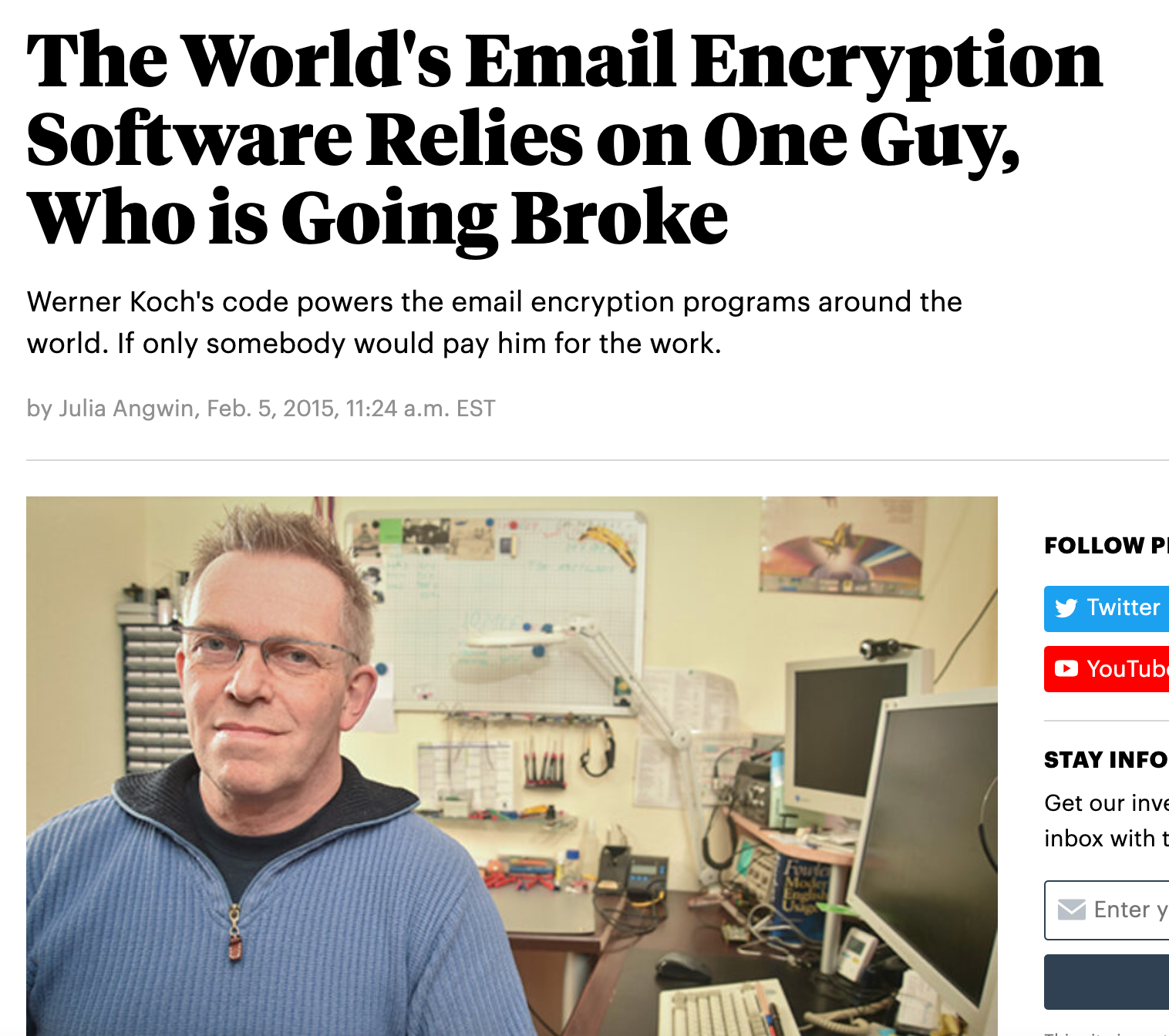We all love open source software. Journalists and scientists visualize and process data from FOSS (Free and open-source software), governments transfer their sponsored developments to free licenses, privacy activists are constantly improving the security of technologies because many eyes look into the code. Databases, server software and other open source infrastructure powers millions of servers around the world. All our beloved Internet is based on FOSS. And I'm not talking about the fact that the ecosystems of the largest website engines are based on FOSS: WordPress, Joomla and Drupal. With the help of FOSS, millions of people can translate software into the rarest language and prevent this language from dying under the influence of the expansion of world languages. Finally, the FOSS ideology provides an answer and monopolization of social media through ActivePub / Fediverse.
It is possible to enumerate the advantages of open source software for quite a long time, but, for some reason, we see that FOSS meets with opposition everywhere, often from where it was not expected. In anticipation of the online conference "Admin" , which will be held tomorrow and the day after tomorrow, I tried to analyze the non-technical challenges of Open Source development.
Growing user requirements for UX
There are many programmers in OS, but few UXers. Does this make many OS applications look completely different from their commercial counterparts? At what point did the OS movement alienate designers and developers? Or maybe they were never taken seriously, because the mouse is for the weak, the command line and that's all.
But even if UXers have been invited, how can we arrange the process so that UX development does not turn into a painful long-running drama, as, for example, with Gutenberg in WordPress? Can we say that humanity has generally reached certain limits of what volunteer self-organized groups can develop? Those. is there any physical cognitive-organizational limit to open source development? I believe not, but I will leave the question, one way or another.
High barrier to entry for ubiquitous use
Many platform solutions rely deeply on the Open Source infrastructure, but they constantly flaunt the fact that they say "we don't need to be installed, why do you need to bother with the OS". Indeed, FOSS is often difficult to install and maintain.
- FOSS- (, Tor VLC). (), . ( ) – 90% Open Source.

, , , , . , FOSS – , , , . , , .
FOSS-, .. ( - .), , FOSS .
– - ?
OS-
, . FOSS – , , . FOSS , - – , -, FOSS.
« », « », « », «», « » .. – freemium - Open Source.
, , ( ) , . , GnuPG, , FOSS.

FOSS – , ? ?
, . . . Open Source. . Open Source .
– , Computer Vision Developer, Lacmus.
– , .
: , Linux ; , Amnezia VPN; , Copter Express; , Associate Software Engineer Red Hat; , PhD (Mines ParisTech), (CNRS, ), UX- Delta.Chat; , NewsViz; , -; , , ( ); (Foralien Bureau); Dr. Quadragon, Mastodon; , Lacmus; , « »; -, .
